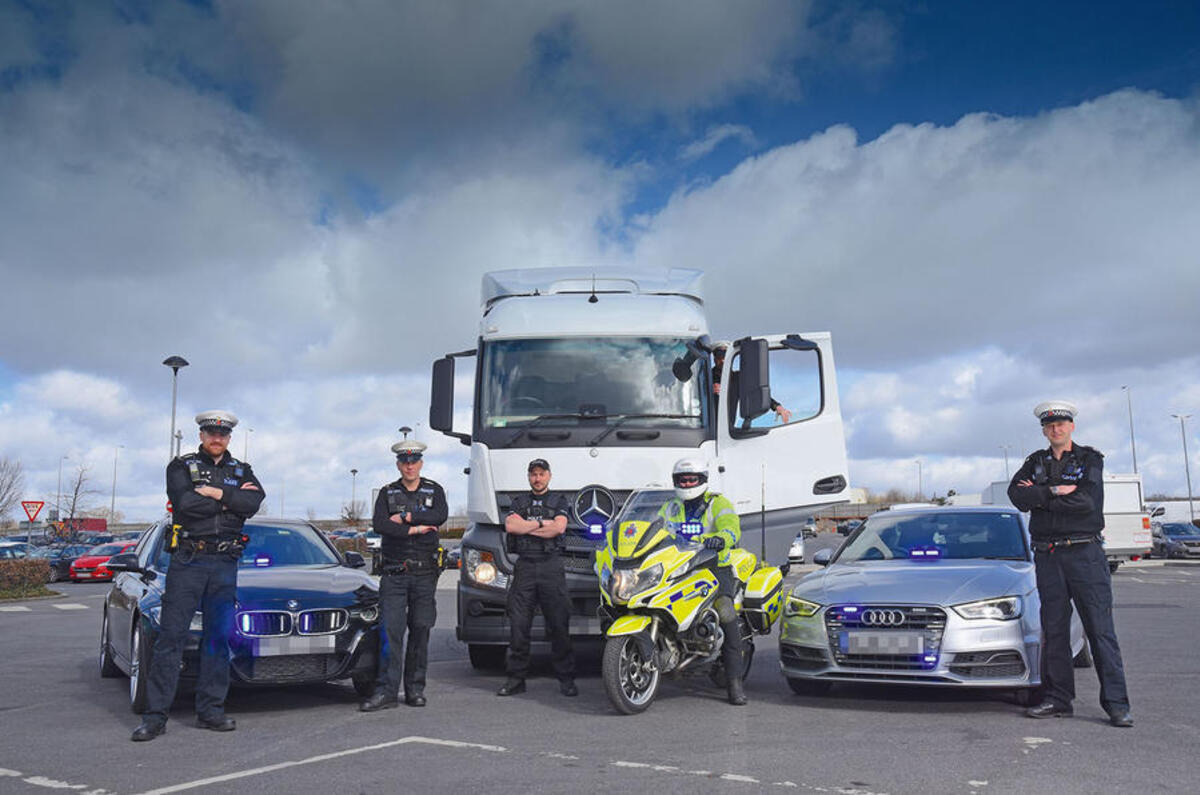Roads policing should be prioritised in the government’s pledge to hire 20,000 additional police officers, according to the Parliamentary Advisory Council for Transport Safety (PACTS).
The council, whose founders were responsible for the 1981 seatbelt legislation, claims in a report that “successive years of cutbacks in roads policing” are partly responsible for the number of road deaths stagnating for the past decade.
The report claims there is “clear evidence” that specialist roads policing is effective and a boost in numbers would be welcomed by the public. It looks at the 'Fatal 4' offences (speeding, not wearing a seatbelt, driving under the influence of drink or drugs and using a mobile phone at the wheel) and claims that where enforcement has increased, casualties from these offences has dropped.
PACTS executive director David Davies said: “The coronavirus lockdown has highlighted the importance of roads policing, with traffic speeds increasing on empty roads and worrying incidents of extreme speeding. This could have serious consequences, particularly for people following government advice to walk and cycle.
“The number of road deaths is more than twice the deaths from homicide and terrorism combined and breaches of road traffic laws are the biggest single cause of road deaths. This needs to be recognised in the government’s priorities and resources for policing.”
The report claims that although the total number of all police officers in all forces in England and Wales fell by around 13% between 2010 and 2019, the number of dedicated roads policing officers fell by 22% between 2010 and 2014 and 18% between 2015 and 2019. The Police Federation claims there are actually substantially fewer specialist officers than even these numbers illustrate.
READ MORE
Ford Ranger Raptor to be trialled by UK police forces
Government makes it easier to close urban roads to cars
Budget 2020: How the government’s plans will affect motorists




Join the debate
Add your comment
Very disappointing report
Minimal insight into human psychology, thus all about the blanket enforcement of rules and nothing about improved levels of driver training and awareness.
Any regular road user knows that's the real problem area. Analysis of the death and serious injury statistics shows it clearly - e.g. trained PSV or HGV drivers have far lower accident rates.
runnerbean wrote:
Motorcyclists are also highly trained and yet they have a very high incidence of single vehicle accidents.
Comparatively speaking young drivers are now better trained and their accident rate went up. This was because as young drivers become rarer they ended up giving their mates lifts more and thus were incentivised to show off.
Changing attitudes so everyone drives like a taxi driver is unlikely which means that the only real lever that we have left is car design (making it really annoying to not wear your seatbelt) and road design.
Accident black spots occur because of road design not because people become thick when they approach certain areas.
That said the UK roads are basically the worlds safest so we are in a case of deminishing returns.
Revenue
As usual.
As usual, they've discovered it was a bad idea for police cutbacks,and now with the gradual relaxing of lockdown more people are going further than the five mile limit, having more Police on duty, being visible,and start booking a few might slow this trend down, I know it's hard if there's friends and family we haven't seen for months, but, we're trying to stop the virus spreading, and the measures we're having to take won't be forever.